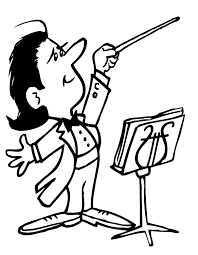
ChorTeach is ACDA’s quarterly publication for choral conductors and teachers at all levels. It is published online, and each issue contains four practical articles. If you are not already a member of ACDA, you can join and receive access to ChorTeach online. Below is an excerpt from an article written by Joseph Flummerfelt appearing in the Winter 2013 issue.
_____________________________________
As an emerging young conductor, I constantly found myself frustrated because, without knowing it, I was caught in the gap between my sense of how the music should sound and my ability to evoke it with my gesture. As the years have gone on, this gap has lessened and mostly dissolved. I am more able to verbalize what I believe to be at the core of the conductor’s capacity to communicate the composer’s intent more fully. I believe conducting is much more about connection and far less about controlling. To be sure, we strongly influence and, in a certain sense, control the dynamic and energetic properties of the musical line.
We clearly set the tempo and determine the timing between sections and movements, etc. The negative kind of control is a manipulative one, a relationship to the score in which we impose our demands in a manner that often tends to be ego-centered rather than composer-centered. An over-controlled performance will tend to be driven, and the musical line and the structure will not be allowed to breathe. The conducting gesture will be full of tension and we may, without knowing it, be seeking to be the center of attention, either for our singers or for the audience or for both. Implicit in an ego-drive performance is, I believe, a lack of humility towards the composer’s intention. Surely, each of us, in our journey to become more alive, more fully human, has had to cope with the ego’s ever-present urge to say, “Look at me, look how important I am.”
My life experience tells me that the root of this challenge is frequently the fear of letting others in, letting others know who we really are–being open, being vulnerable, being able to fully receive the sound, and therefore being able to listen without filtering what we hear through the veil of our own insecurities. In short, being at one with ourselves, embracing ourselves, trusting ourselves, and thus being able to trust our singers. I believe choral artistry can only emerge when an intimate depth of communication exists between conductor and singer. At the core of any human interconnection is a constant balancing of the conductor as actor and reactor. The actor speaks his or her truth without fear of reaction of others. The reactor openly receives what is coming back from others without the fear of being hurt. The conductor as actor projects a quality of command coming from a deep well of healthy self-assurance.
By being fully grounded, as well as having completely internalized the score, we are able to get beyond the fearful manipulative constraints of the ego and thus project to our singers a quality of assurance, couched in humility, which enables the singers to trust our musical decisions. This grounding thus allows us to be vulnerable, to be open, to listen deeply, and in a very real sense, to be informed by what is coming from the singers.
This capacity to trust what they offer us is, I believe, what allows them to go more deeply into themselves and to become more connected with their innermost being. Our singers, sensing that we are able to truly listen to them, risk being vulnerable, and they will become more open to a deeper humanity resident within themselves. If this intimacy of connection exists, then the relationship between conductor and singer becomes circular rather than over/under.
__________________
Read more in the Winter 2013 issue at acda.org/chorteach.


Leave a Reply
You must be logged in to post a comment.